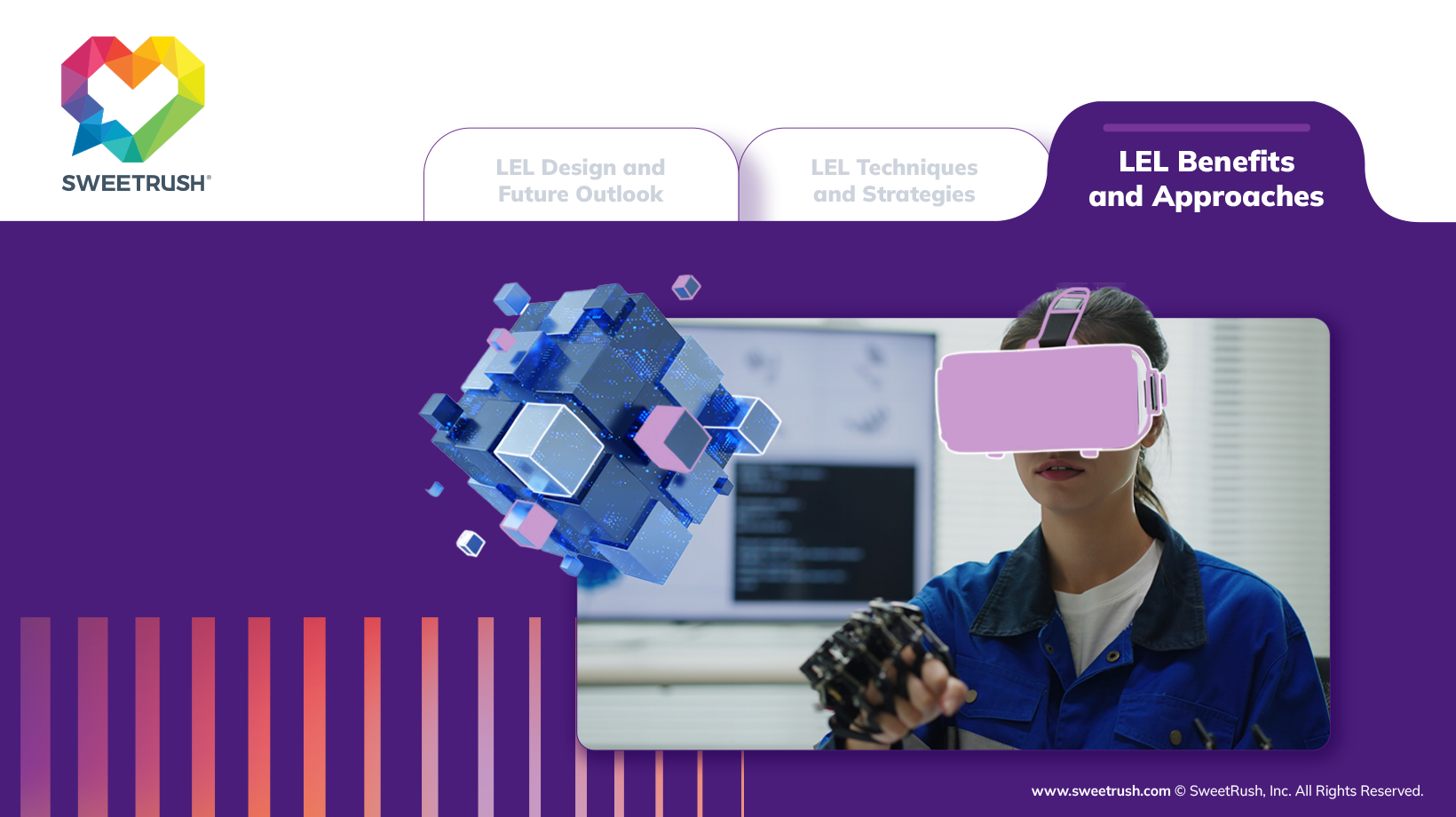In today’s rapidly evolving business landscape, traditional learning modalities often fall short in preparing individuals for the complexities of real-world challenges.
Live Experiential Learning (LEL) represents a transformative shift in instructor-led training (ILT) design and delivery, moving beyond passive knowledge acquisition to active, immersive experiences that prioritize “learning by doing.” By engaging learners in dynamic simulations, real-world projects, and facilitated reflection, LEL cultivates critical skills such as emotional intelligence, adaptability, and strategic decision-making, thus promoting Experiential Intelligence, or XQ.
LEL transcends traditional training paradigms, immersing learners in scenarios that demand critical thinking, collaborative problem-solving, and adaptive decision-making, equipping them with the practical tools and emotional intelligence necessary to navigate ambiguity, drive innovation, and collaborate effectively.
Live Experiential Learning: Benefits for Learners
For L&D leaders seeking to elevate learners’ capabilities and confidence, LEL provides a powerful practice space to develop essential competencies through immersive and engaging experiences. The following are key advantages of LEL:
- Enhanced Leadership Skills
- Develops critical skills such as decision-making, communication, problem-solving, and emotional intelligence.
- Increased Self-Awareness
- Helps learners understand their strengths, weaknesses, and preferences.
- Improved Team Dynamics
- Fosters collaboration, communication, and trust within teams.
- Greater Adaptability
- Prepares learners to navigate complex and changing environments.
- Increased Engagement
- Experiential learning tends to be more engaging for adult learners.
- Real-time interactions and active participation foster a more engaging and stimulating learning environment.
- Practical Application of Knowledge
- LEL challenges learners to apply theoretical knowledge in real-world or simulated scenarios through a “learning by doing” approach.
- Improved Retention and Recall
- Active participation and emotional engagement in LEL deepen learning and better long-term retention of information by creating memorable connections that reinforce learning.
Effective Approaches to Live Experiential Learning
Modernizing ILT for learners involves adapting traditional methods to meet the demands of a rapidly changing business environment. Consider the following approaches to LEL:
- Active Participation
- Learners are not passive recipients of information; instead, they actively participate in exercises, simulations, and real-world projects.
- Reflection
- A crucial component is the reflection process, during which learners analyze their experiences, identify lessons learned, and understand how to apply them.
- Real-World Application
- The goal is to bridge the gap between theory and practice, enabling learners to apply their knowledge in authentic situations.
- Feedback
- Constructive feedback is essential for learners to understand their strengths and areas for development.
With its hands-on and reflective approach to skilling, live experiential learning (LEL) offers a powerful, hands-on upgrade to your organization’s ILT, driving deeper engagement and skill development.
Looking for more on how LEL can help you transform your approach to skills development, productivity, and future-readiness? Check out these related articles in our LEL series:
Ready to leverage these insights about LEL into your L&D and talent strategy? Connect with us, it will make our day!




